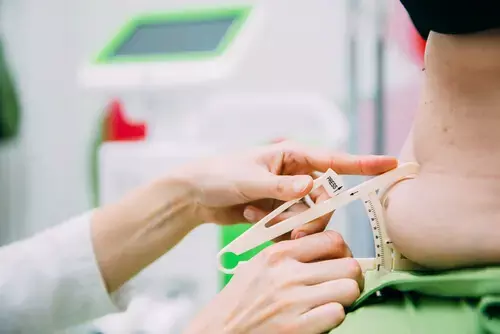- Home
- Medical news & Guidelines
- Anesthesiology
- Cardiology and CTVS
- Critical Care
- Dentistry
- Dermatology
- Diabetes and Endocrinology
- ENT
- Gastroenterology
- Medicine
- Nephrology
- Neurology
- Obstretics-Gynaecology
- Oncology
- Ophthalmology
- Orthopaedics
- Pediatrics-Neonatology
- Psychiatry
- Pulmonology
- Radiology
- Surgery
- Urology
- Laboratory Medicine
- Diet
- Nursing
- Paramedical
- Physiotherapy
- Health news
- Fact Check
- Bone Health Fact Check
- Brain Health Fact Check
- Cancer Related Fact Check
- Child Care Fact Check
- Dental and oral health fact check
- Diabetes and metabolic health fact check
- Diet and Nutrition Fact Check
- Eye and ENT Care Fact Check
- Fitness fact check
- Gut health fact check
- Heart health fact check
- Kidney health fact check
- Medical education fact check
- Men's health fact check
- Respiratory fact check
- Skin and hair care fact check
- Vaccine and Immunization fact check
- Women's health fact check
- AYUSH
- State News
- Andaman and Nicobar Islands
- Andhra Pradesh
- Arunachal Pradesh
- Assam
- Bihar
- Chandigarh
- Chattisgarh
- Dadra and Nagar Haveli
- Daman and Diu
- Delhi
- Goa
- Gujarat
- Haryana
- Himachal Pradesh
- Jammu & Kashmir
- Jharkhand
- Karnataka
- Kerala
- Ladakh
- Lakshadweep
- Madhya Pradesh
- Maharashtra
- Manipur
- Meghalaya
- Mizoram
- Nagaland
- Odisha
- Puducherry
- Punjab
- Rajasthan
- Sikkim
- Tamil Nadu
- Telangana
- Tripura
- Uttar Pradesh
- Uttrakhand
- West Bengal
- Medical Education
- Industry
Ursodeoxycholic acid helps prevent gallstones formation after Bariatric surgery, Study finds

In a new study published in Obesity it was shown that Ursodeoxycholic acid (UDCA) can successfully prevent gallstone development after bariatric surgery in persons who did not have preoperative gallstones.
Gallstones are a leading source of illness and death worldwide. Gallstone disease affects 10–15 percent of people in Western developed countries. Ursodeoxycholic acid is a bile salt that decreases cholesterol release into bile while increasing cholesterol solubility. It might also help with gallbladder emptying. In individuals with tiny, radiolucent, cholesterol-enriched stones in a working gallbladder with a patent cystic duct, oral litholysis with UDCA produces cholesterol desaturation of bile and may result in gallstone disintegration.
Postoperative gallstone development is increased after bariatric surgery. Many studies have suggested that ursodeoxycholic acid might be used to prevent postoperative gallstone development. As a result, Jingjing Ying and colleagues undertook this study to look into the influence of ursodeoxycholic acid on gallstone development following bariatric surgery in individuals who had no prior gallstones.
Articles examining the effect of UDCA on gallstone development following bariatric surgery were found by searching PubMed, Web of Science, the Cochrane Library, and EBSCO. The incidence of postoperative gallstones was the result. For dichotomous variables, odds ratios were utilized, and random-effects models have been used for statistical analyses.
The key findings of this study were as follow:
1. The inclusion criteria were satisfied by 18 studies with a total of 4,827 individuals.
2. The statistical results revealed that the incidence of gallstones was considerably lower in the UDCA group than in the control group.
3. Furthermore, the incidence of symptomatic gallstones and cholecystectomy was lowered dramatically.
In conclusion, the findings of this study indicates that Ursodeoxycholic acid can minimize the incidence of symptomatic gallstones and the likelihood of postoperative cholecystectomy considerably. Doses ranging from 500 to 600 mg/d can be administered to avoid postoperative gallstone development.
Reference:
Ying, J, Dai, S, Fu, R, Hong, J, Dai, C, Jin, Q. Effect of ursodeoxycholic acid on gallstone formation after bariatric surgery: An updated meta-analysis. Obesity (Silver Spring). 2022; 00: 1– 11. doi:10.1002/oby.23427
Medical Dialogues consists of a team of passionate medical/scientific writers, led by doctors and healthcare researchers. Our team efforts to bring you updated and timely news about the important happenings of the medical and healthcare sector. Our editorial team can be reached at editorial@medicaldialogues.in.
Dr Kamal Kant Kohli-MBBS, DTCD- a chest specialist with more than 30 years of practice and a flair for writing clinical articles, Dr Kamal Kant Kohli joined Medical Dialogues as a Chief Editor of Medical News. Besides writing articles, as an editor, he proofreads and verifies all the medical content published on Medical Dialogues including those coming from journals, studies,medical conferences,guidelines etc. Email: drkohli@medicaldialogues.in. Contact no. 011-43720751


